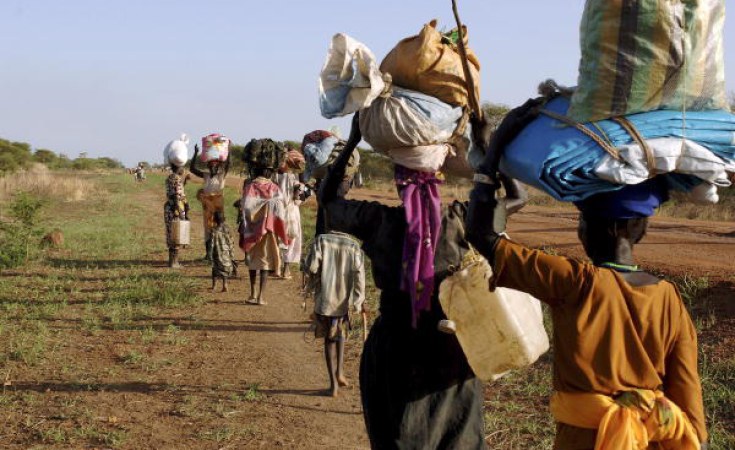Last week, the International Organization for Migration (IOM) reported that 10.7 million people have been uprooted from their homes in Sudan, including 9 million displaced internally--two-thirds since the conflict broke out in April 2023. Sudan now has the highest rate of internal displacement in the world, even surpassing Syria's 7.2 million. This grim record should be a wakeup call.
Behind these figures are many stories of personal upheaval and devastating decisions. "We had to leave everything behind: our older and sick relatives who couldn't travel, and our homes and belongings," said a 57-year-old woman forced to flee Wad Madani town when it came under attack by the Rapid Support Forces (RSF), one of Sudan's two warring parties, in December. "My father is almost 80. Another relative has a chronic heart condition, and another relative is an amputee. They just couldn't cope with the long trip." More than half a million people were displaced following the attacks, around half of whom had already had to flee fighting in Khartoum hoping to find safety in Wad Madani.
The outlook is devastatingly bleak across the board. According to the UN, 20.3 million people in Sudan face severe hunger, more than 70 percent of hospitals in conflict-affected areas aren't functioning, and 19 million children are out of school.
Sudan's warring parties are to blame. Neither the RSF nor the Sudanese Armed Forces (SAF) have shown regard for civilian lives. For nine months, Human Rights Watch and journalists have been documenting SAF's indiscriminate bombings, the targeting of activists, and widespread abuses by the RSF, including pillage and rape connected to their occupation of residential areas. Both the SAF and RSF have been actively hampering aid delivery, with the SAF hindering access to aid workers and supplies, or point-blank denying access, and the RSF repeatedly looting humanitarian supplies.
Despite the horrific human toll, the international response to the conflict has failed to prioritize civilian protection, ensure warring parties are held accountable for their blatant disregard for international humanitarian law, or ensure civilians can at least access assistance.
The humanitarian effort is woefully underfunded. The 2024 Sudan Humanitarian Needs and Response Plan (HNRP) requires US$2.7 billion to carry out relevant operations across Sudan, however only 3.1 percent of this is funded. The United Nations Security Council allowed the Integrated Transition Assistance Mission in the Sudan, of which civilian protection was a key pillar, to be scrapped almost overnight, with no adequate alternative in its place or adequate discussion of the country's civilian protection needs.
These numbers show that global inaction costs lives. Concerned governments need to ramp up funding, including to local response groups. They also need to finally put real pressure on warring parties to allow unfettered and safe humanitarian access and take concrete action when these parties once again violate these basic principles of international humanitarian law.
Mohamed Osman, Researcher, Africa


